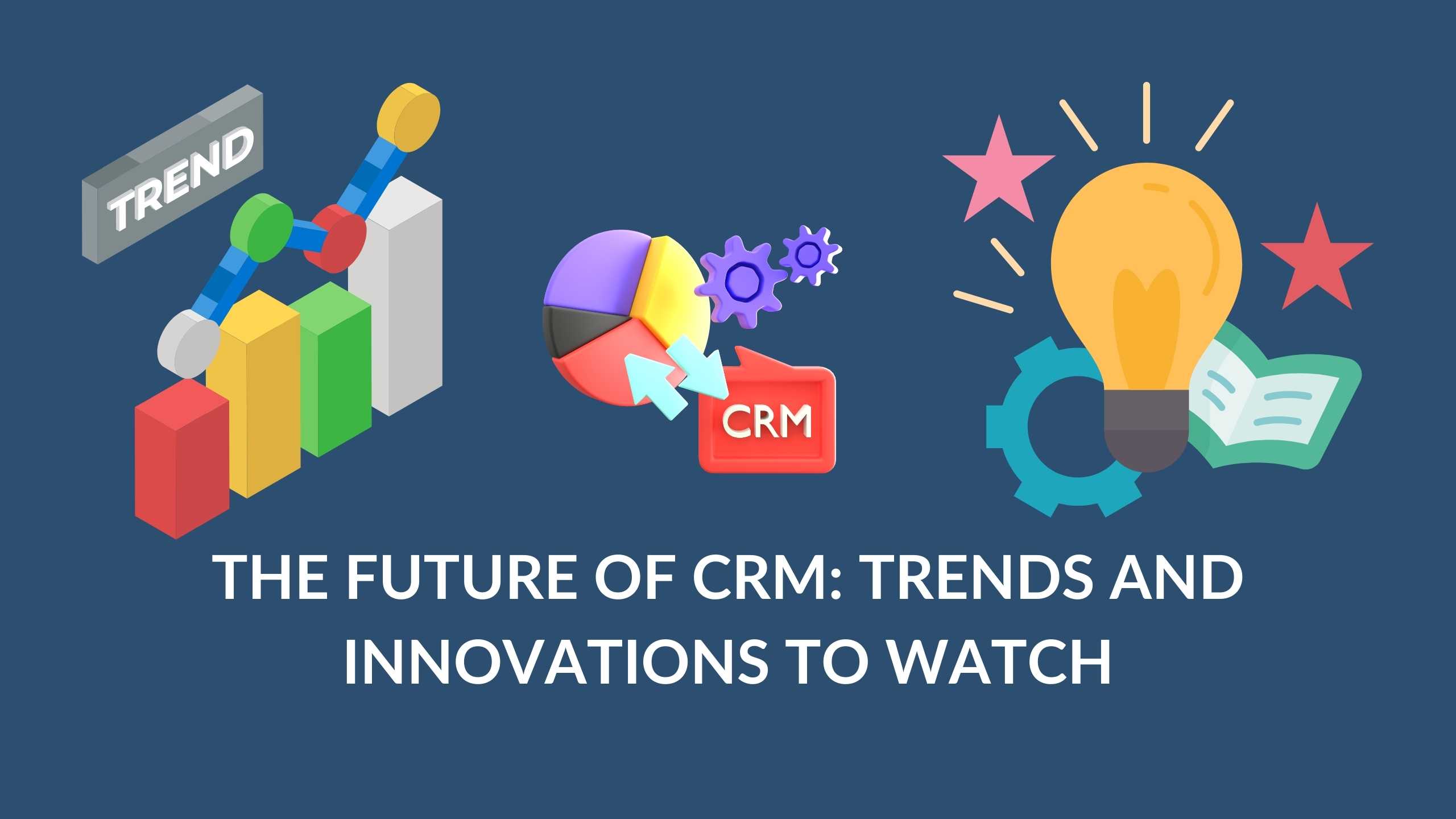CRM Trends and Innovations to Watch
- Proposal Software Customer Relationship Management


CRM Trends and Innovations to Watch
Customer Relationship Management (CRM) software has become an indispensable tool for businesses across various industries. As we step into 2023, the CRM landscape is evolving rapidly, introducing new trends and innovations that promise to reshape the way businesses manage customer interactions and enhance relationships. In this article, we’ll explore some of the key CRM trends to watch in 2023 and beyond.
1. Artificial Intelligence (AI) in CRM
Artificial Intelligence stands out as one of the most transformative trends in the CRM landscape. AI-powered CRM systems bring automation and intelligence into customer interactions, offering benefits such as:
- Automating Tasks: AI automates tasks like lead qualification, lead nurturing, and customer support, streamlining processes and saving time.
- Data Analysis: AI analyzes customer data to identify trends, patterns, and valuable insights, aiding businesses in making informed decisions.
- Personalization: AI helps segment customers and personalize marketing messages, creating more targeted and effective communication.
- Predictive Analytics: Predicting customer behavior and identifying at-risk customers are made possible through AI-driven predictive analytics.
2. Machine Learning Enhancements
Machine Learning (ML), a subset of AI, is gaining prominence in CRM systems. ML allows computers to learn and improve from experience without being explicitly programmed. In CRM, machine learning is applied to tasks like:
- Lead Scoring: ML algorithms assess and score leads based on their behavior, helping sales teams prioritize and focus on high-potential leads.
- Customer Segmentation: ML refines customer segmentation, enabling businesses to tailor their marketing strategies to specific customer groups.
- Product Recommendations: ML algorithms analyze customer preferences to provide personalized product recommendations, enhancing the customer experience.
- Churn Prediction: Predictive modeling helps forecast customer churn, allowing proactive measures to retain valuable customers.
3. Customer Self-Service Evolution
As customer expectations shift, CRM systems are adapting to meet the demand for self-service options. Features such as knowledge bases, chatbots, and self-service portals empower customers to find information and support independently, reducing reliance on direct customer support channels.
4. Mobile CRM for an On-the-Go Workforce
The modern workforce is increasingly mobile, and CRM systems are aligning with this trend. Mobile CRM systems enable sales representatives and customer support agents to access crucial customer data and manage interactions from anywhere, fostering flexibility and responsiveness.
5. Social CRM Integration
Social CRM involves integrating social media with CRM systems. This integration allows businesses to:
- Monitor Social Conversations: Track social media conversations related to the brand, products, or industry.
- Customer Sentiment Analysis: Gauge customer sentiment from social media interactions, providing valuable insights.
- Engagement: Actively engage with customers on social media platforms, enhancing brand-customer relationships.
6. Predictive Analytics for Informed Decision-Making
Predictive analytics, a form of data analytics, uses historical data to predict future outcomes. In CRM, predictive analytics is applied to anticipate:
- Customer Churn: Identify potential churn risks and take preventive actions to retain customers.
- Customer Lifetime Value: Predict the long-term value of customers, aiding in strategic decision-making.
7. Fusion of CRM and Advanced Technologies
The future of CRM lies in its integration with advanced technologies. Alt Delta Datalytics, with its predictive analytics capabilities, empowers businesses to anticipate customer needs effectively. Harnessing the power of Data Analysis, businesses gain actionable insights, enabling them to make data-driven decisions. Data Scraping Software and Tools streamline data collection, ensuring a seamless flow of information. Coupled with intuitive Data Visualization, businesses can interpret complex data effortlessly.
8. Product Analytics Transformation
Product Analytics, a key component of CRM, is experiencing a transformation. Advanced data scraping techniques enable businesses to gather real-time feedback, refining product offerings. Detailed analysis facilitated by Data Scraping tools helps identify product features that resonate with customers, ensuring precise alignment with market demands.
9. Customer Analytics for Personalized Experiences
Understanding customer behavior is at the core of effective CRM. Customer Analytics powered by Data Scraping Software allows businesses to create detailed customer profiles. Marketing Analytics supplements this process by analyzing customer responses to campaigns, enabling targeted marketing efforts. This personalized approach enhances customer satisfaction, fostering long-term loyalty.
10. Marketing Analytics Evolution
Marketing Analytics is undergoing a paradigm shift driven by innovations in CRM. Data Analysis tools provide in-depth insights into customer preferences, aiding businesses in designing impactful marketing strategies. Harnessing Data Visualization, marketers can track campaign performance in real-time, making immediate adjustments for maximum impact. This real-time adaptability is invaluable in the ever-changing marketing landscape.
11. Sales Analytics Sophistication
Sales Analytics, facilitated by CRM, is becoming increasingly sophisticated. Alt Delta Datalytics predicts sales trends, guiding businesses in inventory management and sales forecasting. Data Scraping Software provides valuable market data, enabling businesses to adjust sales strategies promptly. With the aid of intuitive Data Visualization tools, sales teams can monitor their progress, ensuring they are always on target.
In conclusion, the future of CRM is dynamic and intertwined with technological advancements. Businesses that embrace these trends and innovations are poised to elevate their customer relationship management strategies and stay ahead in the competitive landscape.








